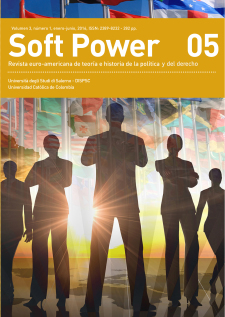Abstract
“No sovereignty, no elected government, no authority, no borders”. It was exactly twenty years ago, John Perry Barlow proclaimed his Declaration of the Independence of Cyberspace. And those were his keywords. Today, we can say that the development of Internet governance as a global policy arena is the answer to the questions that Barlow believed irrelevant to the proper development of cyberspace. If founding myths about an ungovernable, borderless, and intangible Internet have been demolished, what power relations have emerged in the Internet governance arena? What are the ideas –or the normative values– that sustain and legitimize the political role of governmental and nongovernmental actors? And, finally, is the multi-stakeholder model capable of grasping the real conflicts over political power, or is it part of those conflicts, a narrative supporting specific interests and coalitions? The main aim of this article is to consider these issues by analysing the developments of political conflicts over Internet governance, from the IAHC to WSIS, until recent processes such as the WCIT and NetMundial.











